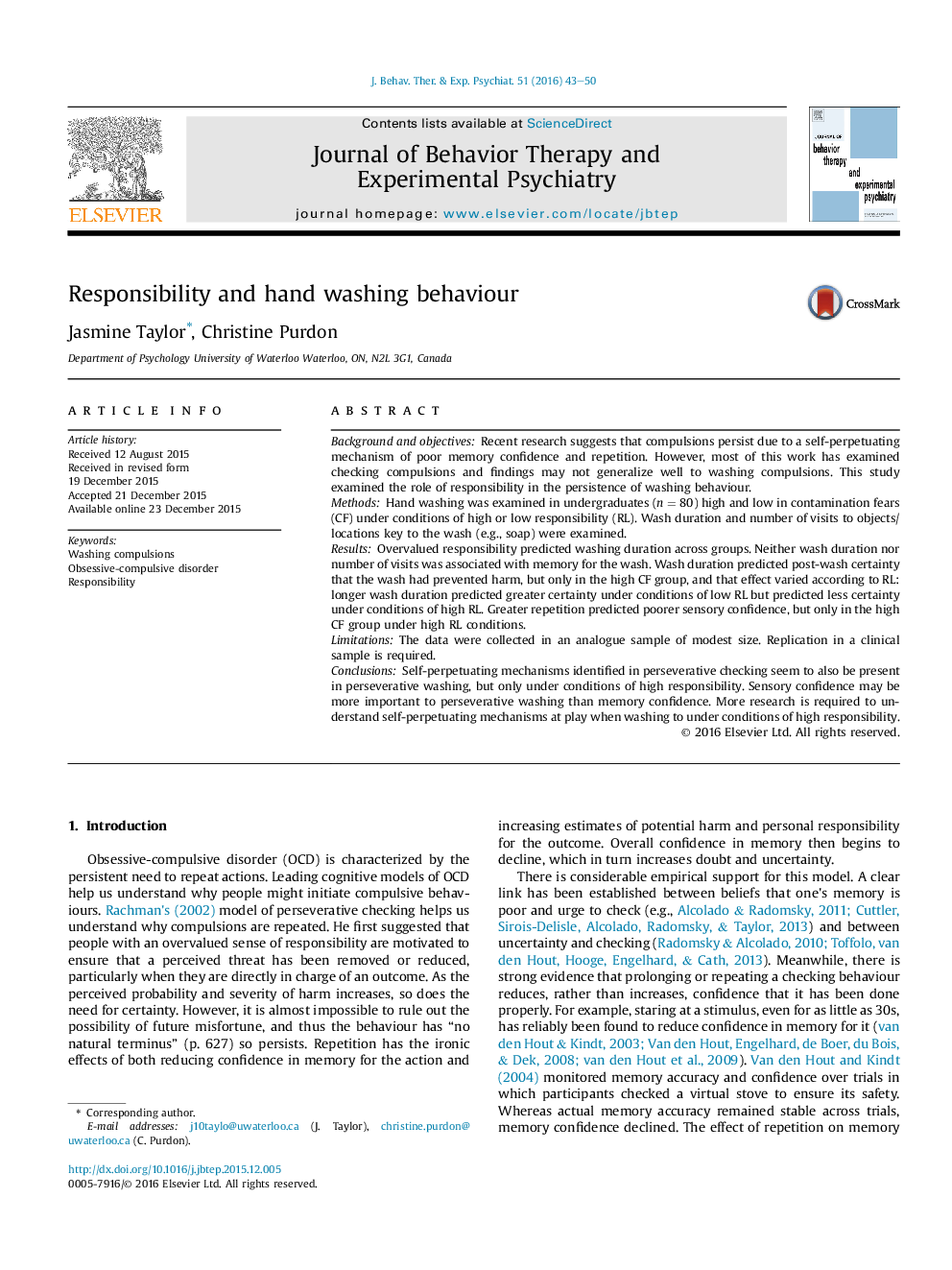| Article ID | Journal | Published Year | Pages | File Type |
|---|---|---|---|---|
| 910265 | Journal of Behavior Therapy and Experimental Psychiatry | 2016 | 8 Pages |
•Overvalued responsibility predicted wash duration.•Responsibility was a necessary condition for ironic effects of washing.•Future research on reasoning processes during compulsions is necessary.
Background and objectivesRecent research suggests that compulsions persist due to a self-perpetuating mechanism of poor memory confidence and repetition. However, most of this work has examined checking compulsions and findings may not generalize well to washing compulsions. This study examined the role of responsibility in the persistence of washing behaviour.MethodsHand washing was examined in undergraduates (n = 80) high and low in contamination fears (CF) under conditions of high or low responsibility (RL). Wash duration and number of visits to objects/locations key to the wash (e.g., soap) were examined.ResultsOvervalued responsibility predicted washing duration across groups. Neither wash duration nor number of visits was associated with memory for the wash. Wash duration predicted post-wash certainty that the wash had prevented harm, but only in the high CF group, and that effect varied according to RL: longer wash duration predicted greater certainty under conditions of low RL but predicted less certainty under conditions of high RL. Greater repetition predicted poorer sensory confidence, but only in the high CF group under high RL conditions.LimitationsThe data were collected in an analogue sample of modest size. Replication in a clinical sample is required.ConclusionsSelf-perpetuating mechanisms identified in perseverative checking seem to also be present in perseverative washing, but only under conditions of high responsibility. Sensory confidence may be more important to perseverative washing than memory confidence. More research is required to understand self-perpetuating mechanisms at play when washing to under conditions of high responsibility.
